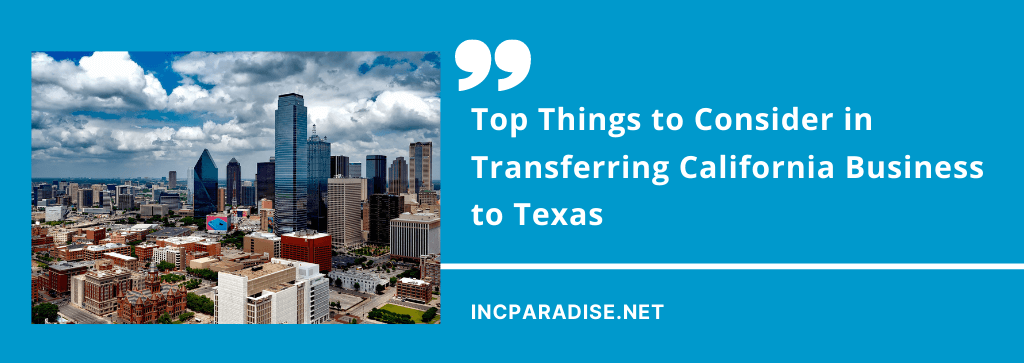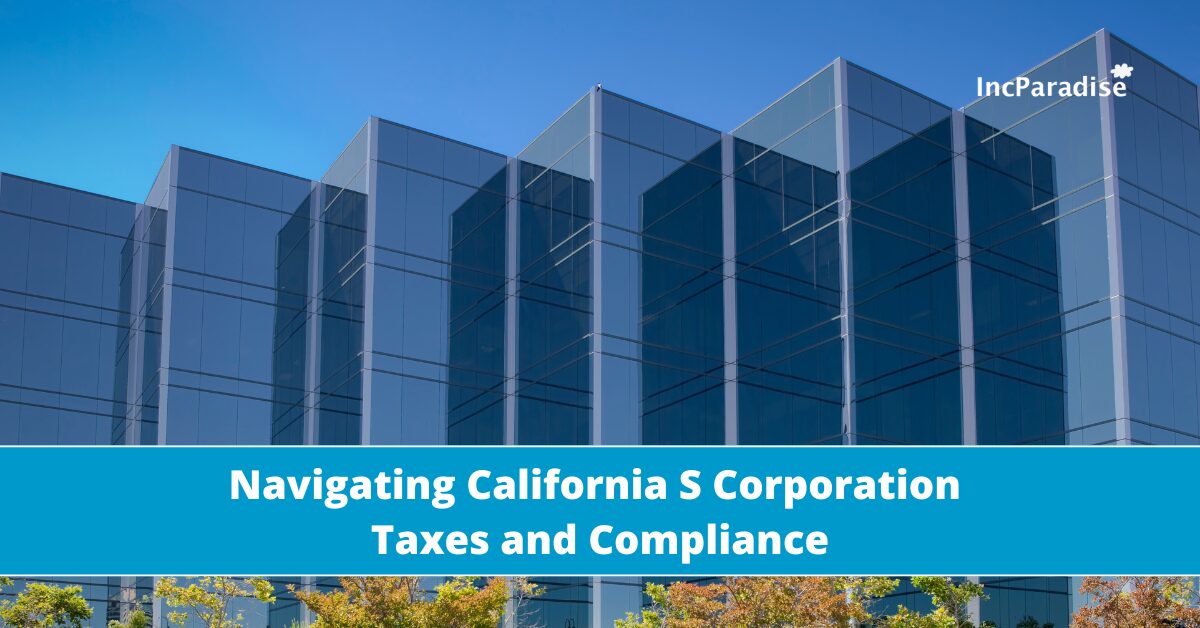California is well-known for levying high real estate taxes while ignoring the financial burden it places on businesses. California has become the least business-friendly state in the world, not just in the United States. In 2021, the flight of company headquarters from California intensified, and it shows no indications of slowing this year. Tesla relocated its headquarters from Palo Alto, California to Austin, Texas, where the company’s newest Gigafactory assembly unit for electric vehicles is set to open. Last year, Oracle relocated its headquarters from Silicon Valley to Austin. AECOM, a Fortune 500 business, announced in December that it would relocate its worldwide headquarters from Los Angeles to Dallas. CBRE, Charles Schwab Corp., and the telecom provider DZS are among the California corporations that have relocated their corporate headquarters to the Dallas-Fort Worth region.

Transferring California Business to Texas
Hundreds of companies are relocating to Texas, ranging from startups to huge enterprises. The more businesses that relocate to Texas, the more job prospects open up for locals. Texas is a desirable location for businesses to relocate to because it provides a welcoming environment for entrepreneurs. For decades, Silicon Valley has been the core of the technology industry. Living, working, and doing business in the area has become difficult due to high housing costs, high tax rates, and severe restrictions. More technology companies are relocating to Texas and other jurisdictions with cheaper living costs and more favorable tax rules.
Why do companies leave California and prefer doing business in Texas?
Texas is a prominent business growth hotspot in the United States. While Austin is the obvious choice, with its increasing reputation as the South’s Silicon Valley attracting many large corporations, there are numerous advantages to investing and relocating your business to Texas.
- Large Market – You might be shocked to learn that all of Texas’ major cities are within a short drive of one other if you’re new to the state. When you combine the four largest cities, you get a market of about 20 million people!
- Important Industries and Companies – Houston is well-known for its excellent medical facilities. That is one of the world’s most prestigious medical institutions. The facility is well-known among medical professionals for its cutting-edge cancer research. According to reports, that medical center would be the 16th largest city in the United States due to its massive size. Houston isn’t just known for its medical industry. The country’s fourth-largest city has a diverse range of strong sectors. Manufacturing, aerospace, energy, and life sciences are among the industries that are constantly evolving.
- Top Accolades – In 2019, Forbes published the most recent Best Places for Business and Careers ranking. Several Texas cities made the list of best places to do business. Dallas and Austin both made the top ten. Among the top 50 cities were Houston, Fort Worth-Arlington, and San Antonio. Forbes considered a number of factors when compiling its list of business possibilities in the United States.
- Great Tax Climate – Texas attracts both established businesses and start-ups because of its favorable tax environment. This state does not collect corporate or individual income taxes. This is a particularly appealing proposition for anyone operating a business in California, where tax rates have risen over time. Because of the tax situation in California, many businesses are relocating to Texas.
- Tech Sector Boom – Apple, Samsung, Dell, and Microsoft are among the major tech employers in this Texas metropolis. Technology start-ups are also on the rise in the area. These businesses have little trouble finding top employees. The Austin area’s universities and incubators cater to the demands of tech companies. This has resulted in an influx of large tech firms, almost as if Silicon Valley had relocated to Texas!
Top companies moved their HQ from California to Texas
AECOM, a Fortune 500 business, announced in December that it would relocate its worldwide headquarters from Los Angeles to Dallas. CBRE, Charles Schwab Corp., and the telecom provider DZS are among the California corporations that have relocated their corporate headquarters to the Dallas-Fort Worth region. Tennessee, Arizona, and Nevada have also been successful in attracting California’s corporate headquarters to their states. Since 2018, 25 corporate headquarters have relocated from California to Tennessee, with 15 choosing Nashville. According to Stanford University’s Hoover Institution, about 300 firms have relocated their headquarters out of California since the beginning of 2018. The pace of this migration picked up in 2021, with 74 HQ relocations from California in 2020.
Things to Consider While Transferring California Business to Texas
If you plan to keep doing business in your home state, you should consider setting up two independent and distinct businesses, books, employees, and accounting systems. In general, starting a business in Texas is easier than terminating your commercial ties in your outgoing state.
Understand Texas business taxes
Texas’ company tax is known as a franchise tax. The majority of enterprises in the state pay a one percent tax. Some tiny enterprises will pay a tax rate of less than 1%. With the exception of sole proprietorships and some general partnerships, all business types in Texas are liable to the franchise tax. Determine the new business’s possible tax obligations with federal, state, and local tax authorities. Federal tax responsibilities are filed through the Internal Revenue Service (IRS) (IRS). The Texas Comptroller of Public Accounts is in charge of state tax filings.
Registering your business
Sole proprietorships and partnerships, in general, must register and submit their business name (also known as a DBA or assumed name) with their local county clerk’s office. If you wish to incorporate, the Secretary of State’s Office (SOS) website can help you select the appropriate legal structure. On the SOS website, you may also register the new legal company. If your company is set up as a sole proprietorship or general partnership, you’ll need to file a “Doing Business As” form with the county clerk in each county where you’ll be doing business. It must be filed in each county where the business will be conducted if there is no business premise.
Business licenses and permits
Texas does not require a general business license. However, it is critical to identify whether specific company activities require federal, state, or municipal licenses, permits, certificates, registrations, or authorizations. Our Texas Business Licenses & Permissions Guide for 2022 provides a comprehensive list of state permits and licenses required for people who want to start a business in Texas.
How IncParadise Can Help You to Transfer Your California Business to Texas?
You must register to do business in the new state if your LLC was formed in one state and you moved to another. You may also wish to transfer your firm from the previous state to the new one to eliminate the inconvenience of dealing with two states. The technique you’ll use is determined by your business objectives and the states you’re leaving and entering. IncParadise will make it simple for you to relocate your company to Texas. With our expertise, knowledge, and devotion, we will help your company achieve its full potential in Texas.








